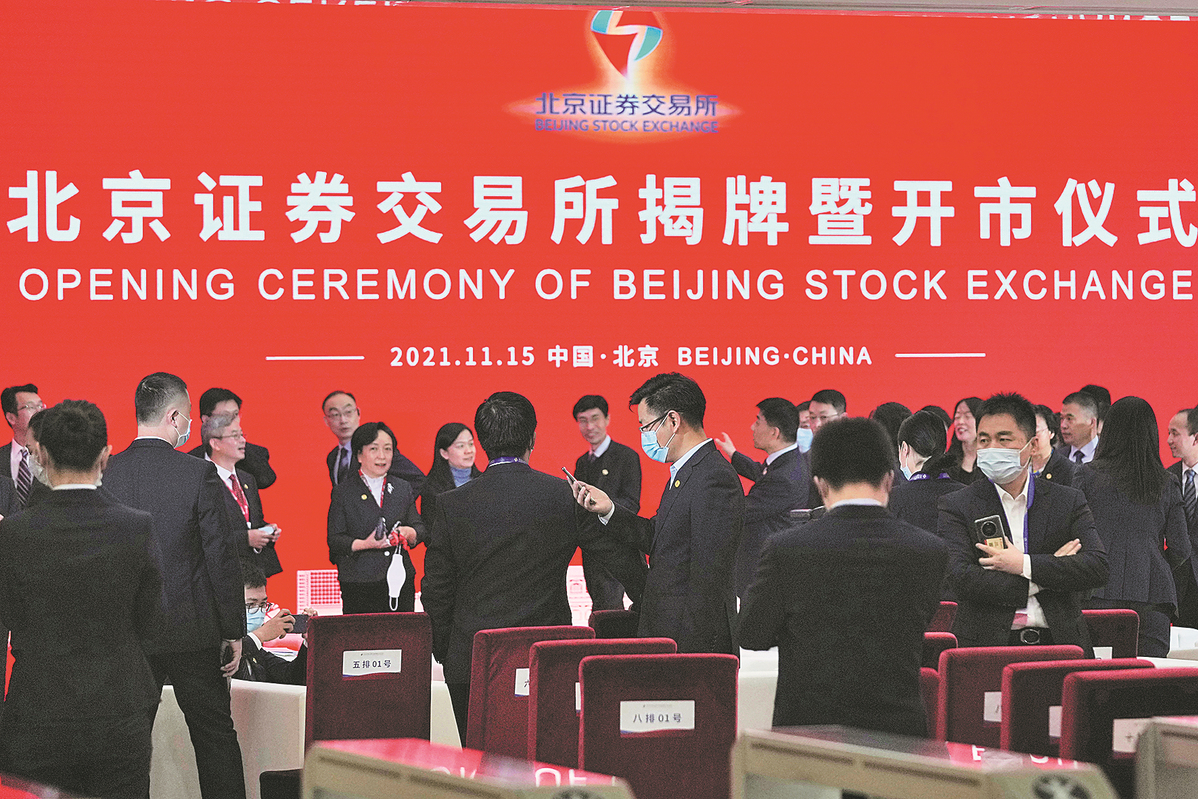New bourse in the market for innovation


Vital factor
Access to financing is especially important for BSE-listed companies, which rely heavily on R & D investment to survive and thrive. The first 81 companies trading at the new bourse saw their average annual R & D investment valued at 25.3 million yuan last year, more than 4 percent of their annual sales revenue for 2020.
On average, A-share companies devoted 1.92 percent of their annual income to R& D last year.
Of the 81 companies, 87 percent are from the advanced manufacturing, modern services, high-tech services, and strategic emerging industries. Seventeen of the debutants are "little giants" recognized by the Ministry of Industry and Information Technology as leading SMEs that specialize in niche sectors, command a high market share, boast strong innovative capacity and core technologies. Most of the companies were launched between 2002 and 2006.
To help them successfully float on the BSE, central regulators have lowered the threshold. A company with market capitalization estimated at 200 million yuan can apply to go public at the bourse. More important, no stringent requirement has been set for BSE applicants' profitability, as they have invested a sufficient amount in R& D.
In comparison, the threshold is set at 1 billion yuan if a company plans to go public on the ChiNext at the Shenzhen Stock Exchange, which helps companies from traditional industries come up with new business models and patterns. A similar benchmark is set for the STAR Market at the Shanghai Stock Exchange, which aims to nurture large hard technology companies.
While listing requirements have been loosened at the BSE, this also means more complex issues for investors.
Wang, of Standard Chartered, suggested that individuals intending to invest in BSE companies turn to professional institutions, which have researchers with relevant academic backgrounds and additional industry insight.
With this in mind, the first eight BSE-themed mutual fund products went for sale on Friday. All the big names in this industry are on the product list, including E Fund, China Asset Management, Harvest Global Investments and China Universal. With each product's subscription limit set at 500 million yuan, a total of up to 4 billion yuan in funds will be raised. At least 80 percent of the funds will be used to invest in BSE stocks.
All eight products reached the 500 million yuan limit by noon on Friday.
Gu Xinfeng, fund manager at China Asset Management, said liquidity at the BSE will improve with more capital attracted by the mutual funds. As the first eight products are two-year closed-end mutual funds that exclude daily redemption, the idea of long-term and value investment will be better realized, he said.
Granting approval for the eight mutual fund products on Nov 12, the CSRC also stressed that fund managers should abide by the rules for long-term, value and rational investment. They should be responsible as professional investors in the market and as practitioners of inclusive finance. Continued efforts should be made to enhance fund managers' competency in research and risk control. This would enable them to give full play to their roles as institutional investors when helping with pricing of initial public offerings and taking part in secondary market trading, the CSRC said.























